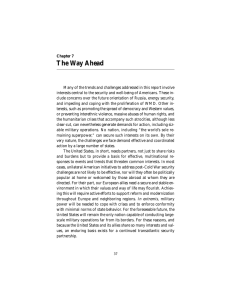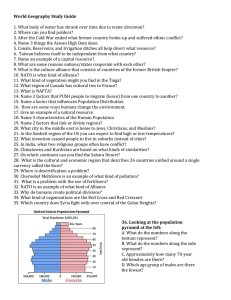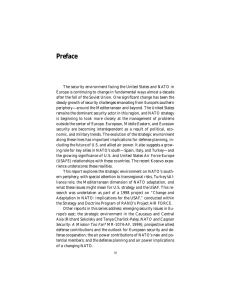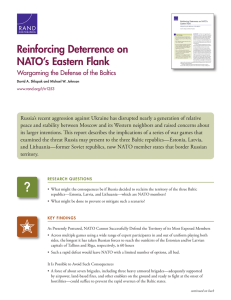“6 NEW PARLIAMENTARIANS PROGRAMME” CONFERENCE REPORT
advertisement
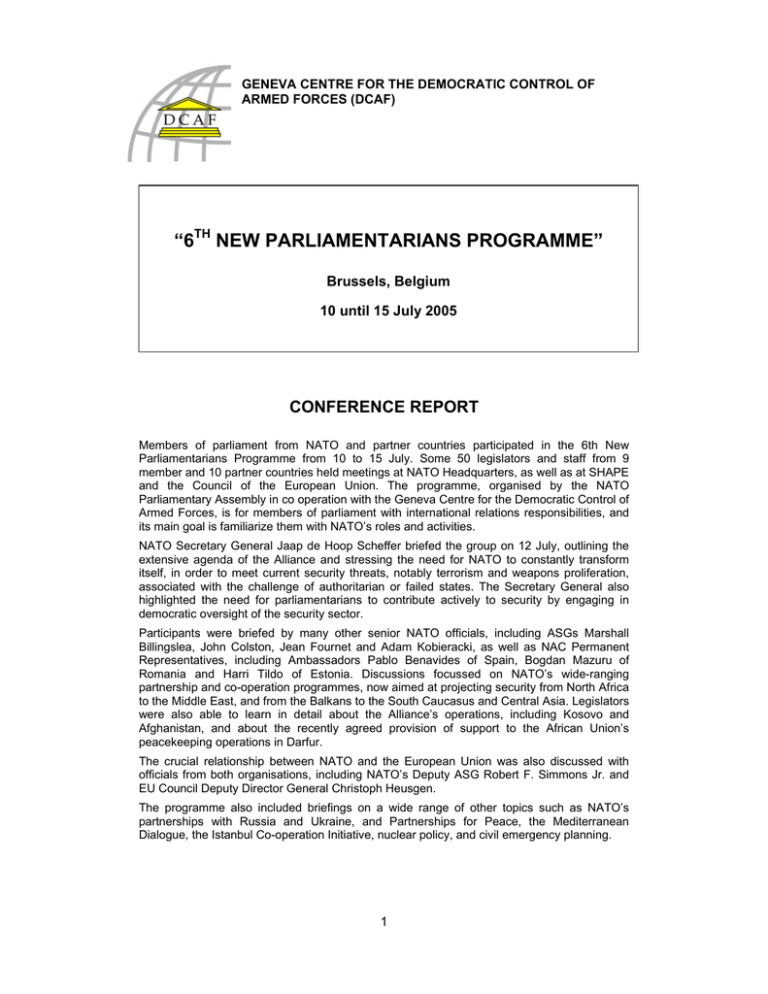
GENEVA CENTRE FOR THE DEMOCRATIC CONTROL OF ARMED FORCES (DCAF) “6TH NEW PARLIAMENTARIANS PROGRAMME” Brussels, Belgium 10 until 15 July 2005 CONFERENCE REPORT Members of parliament from NATO and partner countries participated in the 6th New Parliamentarians Programme from 10 to 15 July. Some 50 legislators and staff from 9 member and 10 partner countries held meetings at NATO Headquarters, as well as at SHAPE and the Council of the European Union. The programme, organised by the NATO Parliamentary Assembly in co operation with the Geneva Centre for the Democratic Control of Armed Forces, is for members of parliament with international relations responsibilities, and its main goal is familiarize them with NATO’s roles and activities. NATO Secretary General Jaap de Hoop Scheffer briefed the group on 12 July, outlining the extensive agenda of the Alliance and stressing the need for NATO to constantly transform itself, in order to meet current security threats, notably terrorism and weapons proliferation, associated with the challenge of authoritarian or failed states. The Secretary General also highlighted the need for parliamentarians to contribute actively to security by engaging in democratic oversight of the security sector. Participants were briefed by many other senior NATO officials, including ASGs Marshall Billingslea, John Colston, Jean Fournet and Adam Kobieracki, as well as NAC Permanent Representatives, including Ambassadors Pablo Benavides of Spain, Bogdan Mazuru of Romania and Harri Tildo of Estonia. Discussions focussed on NATO’s wide-ranging partnership and co-operation programmes, now aimed at projecting security from North Africa to the Middle East, and from the Balkans to the South Caucasus and Central Asia. Legislators were also able to learn in detail about the Alliance’s operations, including Kosovo and Afghanistan, and about the recently agreed provision of support to the African Union’s peacekeeping operations in Darfur. The crucial relationship between NATO and the European Union was also discussed with officials from both organisations, including NATO’s Deputy ASG Robert F. Simmons Jr. and EU Council Deputy Director General Christoph Heusgen. The programme also included briefings on a wide range of other topics such as NATO’s partnerships with Russia and Ukraine, and Partnerships for Peace, the Mediterranean Dialogue, the Istanbul Co-operation Initiative, nuclear policy, and civil emergency planning. 1 Feedback from participants was extremely positive, despite have a relatively lengthy and very packed programme. 2



